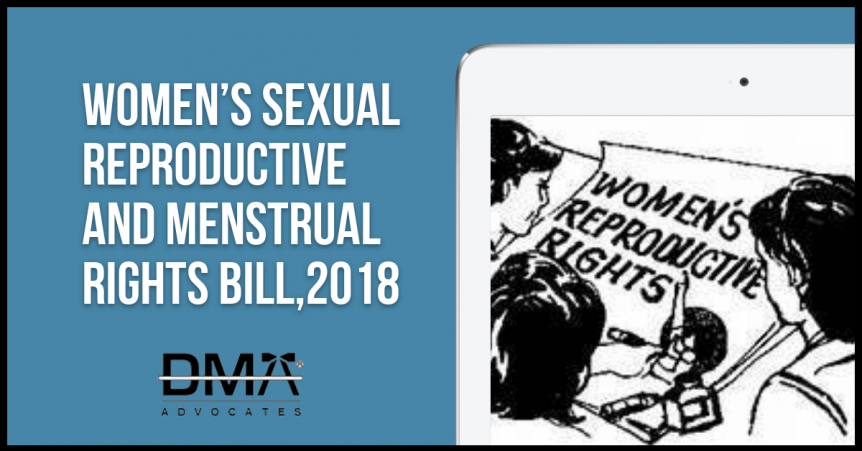Women in our country are considered next to the divine as they are the ones who are biologically blessed with an ability to produce a new one. However, this ability of women is now at the verge of turning a curse with incidents like rapes including marital rapes and unexpected pregnancies which is not only unwanted physical stress but also emotional and mental stress. Therefore, the need of the hour is to understand the word “consent” which is entirely unambiguous in itself, and this Bill is an incomplete understanding of the same.
The bill is divided into four chapters which bring necessary amendments to be specific relevant and age-old legislations.
The First Amendment is to one of the most controversial Sections under IPC, i.e. Section 375, where the man who knows that he is not the one whom the woman consented to for sexual intercourse. This amendment not only broadens the definition of rape but also acknowledges the fact that a woman has her own will and wish to have sexual intercourse with a man of his choice and consent. Another necessary amendment is to criminalize marital rape which is a massive step towards those men who has a mentality to have sexual intercourse with his wife without her consent. It stresses the importance of understanding the not so vague words “Yes” and “No”.
The Second Amendment is to “The Medical Termination of Pregnancy Act, 1971”. This Amendment seeks to change the name of the Act to “Legal Termination of Pregnancy Act”, which is necessary as the word “Medical” was vague which created confusion to the doctors, especially in rural areas. Where they failed to interpret Sec 312 of IPC and feared imprisonment which led to a threat to women’s life be it physical or mental. This Bill also highlights abortion through medical and surgical methods by registered health care providers and also removes ambiguity as to who can be a “Registered Health Care Provider”. A noted amendment to Section 5 of the Act is to have confidentiality concerning personal details of such women.
Constitution of India guarantees a right to every individual for healthy living, and there are a particular need and care to be taken by and for a woman. The fact is undenied as to the number of problems a women’s body is prone to during her menstrual cycle if proper hygiene is not maintained. Therefore, the government needs to step in by providing “free” sanitary napkins at “every public authority” and the same is being brought in by this Amendment to be made to Right of Children to Free and Compulsory Education Act, 2000. As it is said, if a woman in a family is healthy and educated her family is progressive and equally healthy. However, it is to be made sure that the sanitary napkins to be provided are not to be compromised on quality.
The Bill advances that a lady’s sexual self-rule lies principally in her consent. It implies that something besides her understanding ought not to be assumed as the reason for her sexual assent. It intends to move society from a ‘No methods No’ routine to a ‘Yes implies Yes’ attitude where a lady explains her sexual want as opposed to submitting to sex under pressure. While this holds ground, yet we additionally need to set up the legitimacy of a lady’s ‘No’— weak or something else.
REPRODUCTIVE RIGHTS
- The Bill proposes to change the name of the Medical Termination of Pregnancy Act 1971 to ‘Legitimate Termination of Pregnancy Act’ so doctors in country territories don’t fear capture under Section 312 of the IPC. Area 312 rebuffs anybody leading deliberate premature delivery including the lady herself.
- It gives all ladies ideal to end pregnancy until 12thweek only in response to popular demand. At that point, it offers contingent rights to ladies to end pregnancy until the twentieth week except if it is an instance of female foeticide. The variables in these cases would include a hazard to the lady’s life, danger or grave damage to her or improvement of irregularity in the fetus.
- The Bill has stretched out the privilege to end pregnancy between the 20th and 24th week stretch of pregnancy to rape survivors, women with inability and women having a place with some other related classifications.
- The way that rape survivors will profit by the Bill which would enable them to end their pregnancy up to the 24th week is significant. In any case, the Bill needs to augment its extension to envelop reproduction compulsion in the outskirts, given that this prompts constrained pregnancies and premature births among women.
MENSTRUAL RIGHTS
The bill engenders that women will get their menstrual rights if schools and open specialists begin furnishing ladies with sanitary napkins free of expense to any women who visit the office. The Bill means to compare access to sanitary napkins with the privilege to access to water, and in this manner take out the disgrace. While this is to be sure an appreciated proposition, it remembers to be kept that giving free sanitary napkins does not consolidate every one of the segments of the general public thus it can’t completely clear out the disgrace.
Furthermore, when despite everything we have and advance old conventional ceremonies that strengthen the shame of monthly cycle making a lady sullied, we can never set up a solid base of freedom from it. The bill should address these marks of disgrace and try to ban the act of menstrual unapproachability in traditional society.


